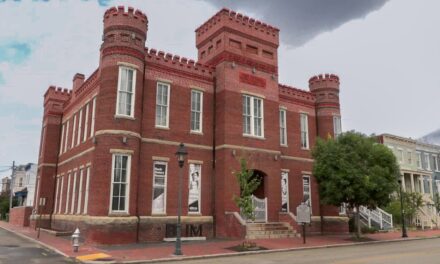
This month marks 60 years since a landmark moment in American history.It was in July 1964 that President Lyndon Johnson signed the Civil Rights Act, banning discrimination in schools and public places.Seventy-five years ago in the town of South Park, Kansas, which is now part of Merriam, there were two schools: the brand new South Park Elementary for white children only, and the Walker School for black children, a two-room building with no indoor plumbing.”It wasn’t the cleanest place in the world that I do remember,” said Delores Locke-Graves.Locke-Graves remembers being told she wasn’t welcome anywhere near the new school.”And I thought about that, and that angered me,” she said. “You know what I’m saying. I was old enough to understand that part.”A woman named Esther Brown, prompted by the disparity in schools, helped convince the parents and teachers to walk out of Walker School in protest, including Delores. The parents helped pay the teachers with bake sales, and school was held in family living rooms.”They walked out,” she said. “But then we walked into those living rooms and still had school.”Locke-Graves was one of the six children who were plaintiffs in the Kansas Supreme Court case Webb versus School District 90. They won that case, paving the way for the children to attend South Park Elementary and influencing the landmark Brown versus Board of Education in 1954.With black Americans still facing widespread discrimination, thousands of people attended the March on Washington with Dr. Martin Luther King Jr. as one of the speakers. Less than a year later, Johnson signed the 1964 Civil Rights Act, banning discrimination in schools and public places. She remembers her mother’s reaction.”We could have some joy and a relative amount of peace,” Locke-Graves said.More than 75 years after Delores Locke-Graves was a plaintiff in a lawsuit to give all students an equal chance, there are eight panels at Merriam Park Elementary School depicting that desegregation battle. The idea is for current and future students to learn those lessons.Locke-Graves has lived not only to see desegregated schools but also Barack Obama elected president—a dream she thought was not even remotely possible. But she says there’s still work to do.”Does the black man really feel completely free to exercise himself as a white man would be? Does he really have this? Does he really? Some do, some don’t.”In addition to the panels at Merriam Park Elementary School, the Johnson County Arts and Heritage Center in Overland Park has a permanent exhibit in the museum about “The Walker Walkouts.”
MERRIAM, Kan. —
This month marks 60 years since a landmark moment in American history.
It was in July 1964 that President Lyndon Johnson signed the Civil Rights Act, banning discrimination in schools and public places.
Seventy-five years ago in the town of South Park, Kansas, which is now part of Merriam, there were two schools: the brand new South Park Elementary for white children only, and the Walker School for black children, a two-room building with no indoor plumbing.
“It wasn’t the cleanest place in the world that I do remember,” said Delores Locke-Graves.
Locke-Graves remembers being told she wasn’t welcome anywhere near the new school.
“And I thought about that, and that angered me,” she said. “You know what I’m saying. I was old enough to understand that part.”
A woman named Esther Brown, prompted by the disparity in schools, helped convince the parents and teachers to walk out of Walker School in protest, including Delores.
The parents helped pay the teachers with bake sales, and school was held in family living rooms.
“They walked out,” she said. “But then we walked into those living rooms and still had school.”
Locke-Graves was one of the six children who were plaintiffs in the Kansas Supreme Court case Webb versus School District 90.
They won that case, paving the way for the children to attend South Park Elementary and influencing the landmark Brown versus Board of Education in 1954.
With black Americans still facing widespread discrimination, thousands of people attended the March on Washington with Dr. Martin Luther King Jr. as one of the speakers.
Less than a year later, Johnson signed the 1964 Civil Rights Act, banning discrimination in schools and public places.
She remembers her mother’s reaction.
“We could have some joy and a relative amount of peace,” Locke-Graves said.
More than 75 years after Delores Locke-Graves was a plaintiff in a lawsuit to give all students an equal chance, there are eight panels at Merriam Park Elementary School depicting that desegregation battle.
The idea is for current and future students to learn those lessons.
Locke-Graves has lived not only to see desegregated schools but also Barack Obama elected president—a dream she thought was not even remotely possible.
But she says there’s still work to do.
“Does the black man really feel completely free to exercise himself as a white man would be? Does he really have this? Does he really? Some do, some don’t.”
In addition to the panels at Merriam Park Elementary School, the Johnson County Arts and Heritage Center in Overland Park has a permanent exhibit in the museum about “The Walker Walkouts.”



